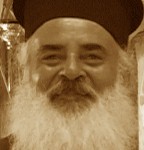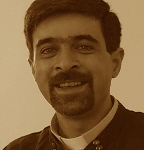|
Christian Zionism

We hope the Western church remembers us in its prayers and we hope that we always remain brothers in Christ. I care for here you in the East, and you care for me in the West. But if you don't care for me as a person, then I'm finished. Christianity is buried.
-Fr. To'mie from "A Mantle"
|
"It isn�t for you to know times or seasons which the Father has set within his own authority."
Acts 1:7
+ + +
"But of that day or that hour no one knows, not even the angels in heaven, nor the Son, but only the Father."
Mark 13:32
Perhaps there is no more important conversation for the Christian community today than that of Christian Zionism, the idea that the modern nation-state of Israel is the fulfillment of Biblical prophecy. Articulated by evangelical leaders such as Jerry Falwell, Pat Robertson, Hal Lindsay, John Hagee, and Ralph Reed, Christian Zionism is a dangerous theology and interpretation of Scripture.
Christian Zionism claims to know how God's prophecy will be fulfilled, a proud and foolish claim for a community who claims Christ as fulfillment of Hebrew Bible prophecy concerning the Messiah. Peter thought he had understood God's prophecy, too - that's why he drew his sword in the Garden of Gethsemane. Christian Zionism also relegates the Church's status to irrelevance, the faithful Christian's only duty now to unconditionally support the State of Israel so that God's prophecies will come true. If we must make God's prophecies come true, we can prevent them from coming true, thus rendering Creation more powerful than the Creator, the ultimate in pride and folly. Christian Zionism also looks forward with glee to the final battle, which will end in another Jewish Holocaust, all of them slaughtered except for the faithful remnant of 144,000.
The calling of the Christian is the calling to discipleship, to following Jesus Christ. Part of that calling is our solidarity with our brothers and sisters in Christ in the land of his birth.
Open letter from Palestinian evangelical leaders to Jerry Falwell
Challenging Christian Zionism
|

